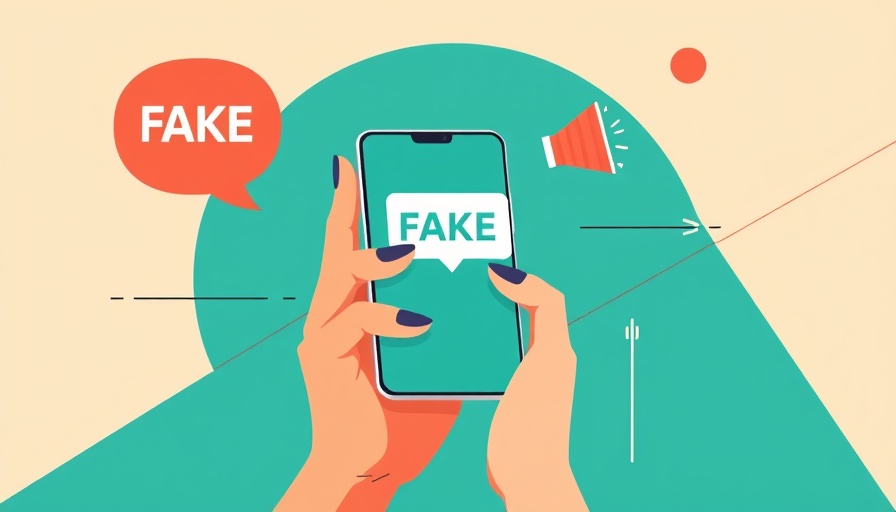
The Rising Tide of Misinformation in the Digital Age
In an era characterized by rapid technological advancements, misinformation on social media has become a significant concern for consultants, coaches, and small business owners. The digital landscape allows for the dissemination of information at an unprecedented scale, but it also facilitates the spread of falsehoods that can mislead the public and tarnish reputations.
Understanding the Impact of Misinformation
Misinformation can take many forms, from exaggerated claims about a product's efficacy to outright fabrications concerning a business's practices. For small businesses, a single viral false claim can undermine trust, erode customer loyalty, and severely impact sales. As this phenomenon grows, businesses need to be proactive in combating misinformation to protect their brand integrity.
How AI is Changing the Misinformation Landscape
The introduction of artificial intelligence into the realm of social media has prompted a dual-edged sword scenario. On one hand, AI tools can actively monitor online platforms for false claims, utilizing machine learning algorithms to detect patterns that suggest misinformation. Platforms like Facebook and Twitter have begun implementing these technologies to identify and flag dubious content, albeit with varying degrees of success.
However, AI also contributes to the sophistication of misinformation techniques. Deepfakes, for instance, involve AI-generated media that can convincingly fabricate audio and video content, making it increasingly difficult for individuals to discern truth from falsehood. As tools for creating misinformation become more accessible, the challenge of verifying information remains a critical issue for users and businesses alike.
Counteracting Misinformation: Best Practices for Businesses
To navigate the murky waters of online misinformation, businesses must adopt strategic communication practices. Here are some actionable insights to reinforce credibility and mitigate the effects of misinformation:
- 1. Establish a Strong Online Presence: Regularly posting factual, engaging content can build audience trust and provide a counter-narrative against misinformation.
- 2. Educate Your Audience: Offering resources that empower your customers to differentiate between fact and fiction can foster a more informed community.
- 3. Monitor and Respond: Use analytics tools to monitor discussions about your brand and be ready to address misinformation quickly and effectively.
- 4. Collaborate with Trusted Platforms: Partner with reputable organizations and media to disseminate accurate information about your products or services.
The Future of Misinformation: Predictions and Trends
As we look to the future, the trajectory of misinformation is likely to intersect with technological innovation. With the rise of AI, we can expect developments that may either help mitigate misinformation or exacerbate its spread. For business owners, staying informed and adapting to new trends is essential. Here are a few trends to anticipate:
- AI for Good: As AI research continues, initiatives will likely emerge to harness this technology to promote factual content rather than false narratives.
- Emerging Communication Channels: Platforms focused on transparency and fact-checking may become more popular among users seeking trustworthy sources.
- Legislative Changes: Governments may implement stricter regulations on misinformation, compelling social media platforms to take more responsibility for content accuracy.
Conclusion: Taking Action Against Misinformation
In conclusion, misinformation poses significant challenges, especially for small business owners and service providers. As the digital information landscape continues to evolve, proactive measures and a commitment to transparency are essential tools in preserving brand integrity. By leveraging technology, adopting best practices in communication, and maintaining a vigilant eye on misinformation trends, businesses can effectively navigate this turbulent terrain.
For consultants, coaches, and small business owners, understanding the dynamics of misinformation is crucial. As you develop your brand's communication strategies, consider your responsibilities not only in promoting your services but also in contributing to a more informed marketplace. As misinformation continues to grow, the time to act is now.
 Add Row
Add Row  Add
Add 






Write A Comment